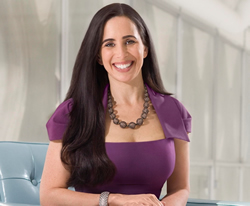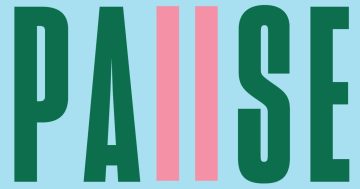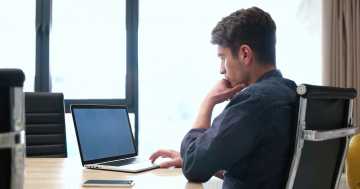Michael Bungay Stanier* talks to author, Juliet Funt about ways to avoid the false lure of busyness, replacing it with more emotion and creativity.
 It irks me to confess this, but my to-do list still enthrals me.
It irks me to confess this, but my to-do list still enthrals me.
Busy, busy, busy.
I’ve been writing about how not to be busy for 20 years, but I have thoroughly, completely, and annoyingly failed to take my own advice.
What do we hide behind our busyness?
Too often, there is a numbing aspect of busyness that so many of us find ourselves using, particularly over the past few years.
Juliet Funt is a globally renowned keynote speakers and the author of A Minute To Think.
She is a proponent of avoiding the false lure of busyness and using the sustaining power of the pause to bring more emotion and creativity into your life.
Juliet (pictured) has noticed in her life and the lives of those around her how busyness can allow you to avoid your true feelings and stop you from doing your best work.
She says: “I think we have been using busyness, especially in the last 18 months but probably for a long time, to numb and to get away from softness.
“There’s a mechanism that you can almost watch happen.
“A human will start to have a feeling, but they are unwilling to go to that feeling.
“They pick up the phone, and now the feeling is gone.
“They’re on the phone, and they’ve passed it.”
Juliet believes there is a price we pay for that constant sublimating.
“There’s a sibling to that emotional willingness, and that is creative openness,” she says.
“In the same way we accidentally push aside emotion, I think there’s a lot of times when the muse is standing right outside the door with a chalice of ideas, and we’re busy on our phone.”
So, what can we do to allow ourselves to feel both more emotion and creativity? The answer is simple but not easy.
Slow down.
Pause.
Think.
Juliet says: “Can you follow a little thread? You can see a little edge of a thread, and one of the threads could head toward emotion or an idea.
“You just follow, follow, follow.
“Slow down and get un-busy and follow, follow, follow.
“Get curious.”
For many of us, though, feeling un-busy leads us to feel anxious.
It can feel like you’ve lost your sense of purpose or maybe your importance.
So how does Juliet recommend people manage the anxiety of stepping away from busyness?
She says: “I think there’s a subliminal feeling at work as if there’s a gigantic, endless piece of butcher paper on the wall, and we’re writing down every single thing we do.
“Then we die, and somebody counts it.
“How many things did you do? The worship of quantity is such a curious place to go to.”
Juliet tells of a conversation she had with a successful executive.
He had a $10 million training company, 300 employees, and millions of people loved him, but he just kept talking about how he needed to scale and get bigger.
Juliet kept trying to politely ask
“Can you tell me why? Why bigger? What do you need more of? It’s not the money? Is it maybe status? Why is it so bottomless?”
Regardless of where you are in life, Juliet believes it’s critical to ask yourself
“What is this all adding up to?”
That question puts a pin in the balloon of the values around busyness.
When we stop worshiping busyness, it allows us to find the work that really matters to us.
Quantity is an unwinnable game.
If you’re spread too thin, there’s no room for quality.
Too often, we confuse activity with productivity.
To avoid this, Juliet has set up a framework for herself.
“Did I make anything on my desk today better, bigger, or more beautiful in the course of the day?”
To find these small wins, Juliet believes you have to get quiet.
“Better could be improving a flow with our client process.
“Bigger could be five more people on a social media feed.
“Beautiful doesn’t have to do only with aesthetics,” she says.
“It could be that things have been a little tense with one of my employees, and I have a heart-to-heart, and I smooth it.”
Activity is a thief, but Juliet says there is one question you can use to defeat it
“What deserves my attention?”
“There’s this myth of: ‘I just can’t tell what is high value on my desk,’ All people have an instinct,” she says.
“If they can just get quiet for a second, they go: ‘Oh, of course. This is the juicy thing, and these are the easy wins’.
“The answer is not convoluted.
“It’s just we don’t give ourselves time to go through the cycle of asking the question.”
Sometimes that question won’t point us to work.
Maybe you will realise you need to check in with your child or friend.
Sometimes you’ll be led to take a vacation.
Whatever the answer, you’ll come back to your work more centred and focused because you’ve checked the most important box first.
Juliet believes that the first step in the process of leaving behind busyness is heading yourself in a direction you fundamentally care about.
This allows you to stop being at the mercy of your to-do list and lets in your muse.
*Michael Bungay Stanier is the Senior Partner at Box of Crayons. His most recent book, The Coaching Habit, has sold a quarter of a million copies.
This article first appeared on the Box of Crayons website.











